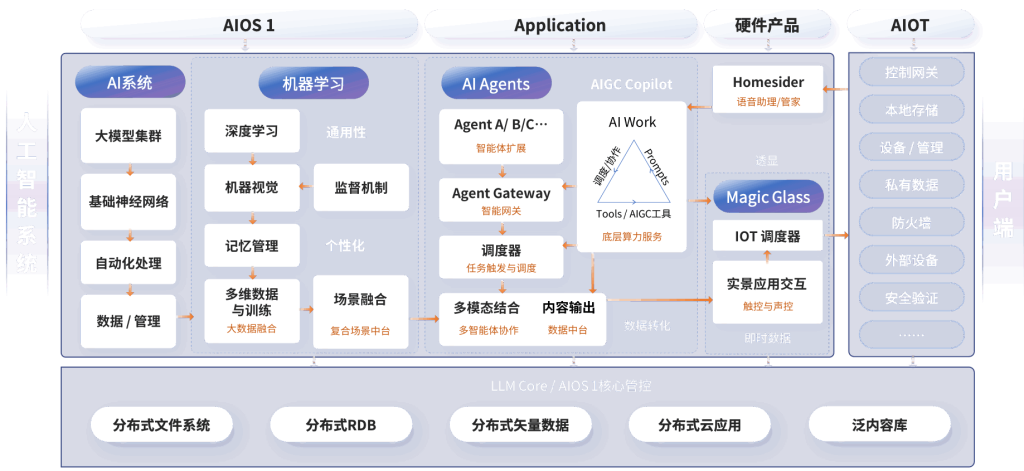The rapid evolution of Artificial Intelligence (AI) has laid a strong foundation for transformative innovations across various sectors. Among these innovations, AI Business Intelligence (BI) has emerged as a critical component for companies seeking to leverage data for strategic decision-making. Organizations today are investing heavily in AI to enhance business intelligence capabilities, making sense of data, driving insights, and ultimately improving operational efficiency.
AI Business Intelligence practitioners harness vast datasets, employing sophisticated algorithms to deliver actionable insights. According to a report by Gartner, over 70% of organizations are using or exploring AI-enhanced BI solutions to unlock data’s potential. This transition signifies a move from traditional BI practices to more agile and insight-driven approaches, enabling organizations to respond faster to market changes.
AI is not just about automation; it’s about acquiring new levels of strategic insight. By utilizing machine learning, predictive analytics, and natural language processing, AI can automate the data collection and analysis process while providing real-time insights. This allows businesses to proactively adapt to customer behavior and market dynamics, ensuring that they stay one step ahead.
AI for Retail Automation: Revolutionizing Customer Experience
The retail industry has seen a seismic shift due to AI technologies that streamline operations and enhance customer experiences. AI for retail automation has gained traction as retailers turn to data-driven solutions to solve complex issues ranging from inventory management to personalized marketing.
According to a report by McKinsey, retailers that have adopted AI in their operations have witnessed an increase in efficiency by over 15%. AI solutions help retailers analyze vast amounts of customer data, predicting trends and preferences, ultimately leading to improved inventory management. For example, AI can analyze past purchasing habits to forecast future demands, helping retailers avoid stockouts or overstock situations.
Moreover, AI enhances the customer shopping experience. Chatbots and virtual assistants provide 24/7 customer support, handling inquiries and guiding customers through the buying process. Personalization engines recommend products based on user behavior, increasing sales and enhancing customer loyalty. The application of AI in retail automation not only empowers businesses to serve their customers better but also aids in reducing operational costs.
AI Workflow Optimization: Enhancing Operational Efficiency
Another significant domain where AI is making strides is workflow optimization. Businesses are continuously seeking ways to improve efficiency, reduce costs, and increase productivity. AI workflow optimization leverages automated processes to streamline workflows, eliminate redundancies, and facilitate better resource management.
AI technologies can analyze workflow processes, identifying bottlenecks and inefficiencies. By implementing AI-driven solutions, businesses can automate repetitive tasks, reduce human error, and allocate resources more effectively. For instance, an AI-powered task management system can prioritize tasks based on urgency and the team member’s workload, ensuring optimal resource use and timely completion.
Additionally, businesses leveraging AI for workflow optimization report a significant drop in completion time for projects. According to a study by Forrester, companies implementing AI in their workflows experienced a productivity increase of up to 40%. This optimization fosters an agile work environment where employees can focus on higher-value tasks rather than routine administrative duties.
Industry Applications and Technical Insights
AI is reshaping various industries—from healthcare to finance, and manufacturing to logistics. Each application leverages AI capabilities to optimize processes and enhance customer interactions.
In healthcare, AI-powered tools analyze patient records and diagnostic data, providing recommendations for treatment plans and enhancing patient outcomes. In finance, AI algorithms detect fraud by assessing patterns and anomalies in transaction data in real time, helping to mitigate risks.
Manufacturers are also benefiting from AI technologies that optimize supply chains and enhance production efficiency. AI-driven predictive maintenance anticipates machinery failures before they occur, reducing downtime and maintenance costs.
Logistics companies utilize AI to optimize routing and inventory management. AI tools can analyze traffic patterns, weather conditions, and delivery schedules, ensuring timely and cost-effective transport solutions.
Investments in AI are skyrocketing, with businesses of all sizes exploring its potential. A report by PwC reveals that AI could contribute up to $15.7 trillion to the global economy by 2030, highlighting the urgency for companies to adopt AI solutions in their operations.
Challenges and Solutions in Implementing AI
While the benefits of AI are evident, implementing these technologies can present challenges such as data quality issues, integration complexities, and regulatory considerations. Organizations must ensure that they have high-quality, accessible data for AI algorithms to work effectively. This involves investing in data management and cleansing processes.
Integration with existing systems can also pose a challenge. Many companies rely on legacy systems that may not seamlessly connect with modern AI tools, leading to disruption and inefficiency. Businesses should develop comprehensive integration strategies that account for both current technology and future needs.
Moreover, organizations must navigate the regulatory landscape surrounding AI. With growing concerns about data privacy and ethical use of AI, businesses should align their AI initiatives with regulations like GDPR and CCPA to avoid legal pitfalls.
To address these challenges, companies can begin with pilot projects that allow them to test AI applications in a controlled environment. This incremental approach can lead to valuable lessons learned, scalable solutions, and growing support among stakeholders. Continuous training and education for employees on AI tools will also facilitate a smoother transition toward AI integration.
Conclusion: The Future of AI in Business Intelligence, Retail Automation, and Workflow Optimization
As the role of AI continues to grow, its impact on business intelligence, retail automation, and workflow optimization will reshape how organizations operate. Businesses that embrace AI technologies will gain a competitive advantage through enhanced operational efficiency, improved customer experiences, and informed decision-making.
The integration of AI in business processes is not a matter of if, but when. Organizations that proactively adapt to these changes will stand to benefit significantly in the long run, positioning themselves at the forefront of their industries. Embracing AI is not just a technological upgrade; it’s an essential step toward fostering a culture of innovation and agility in an ever-evolving market landscape.
In conclusion, understanding and adopting AI is crucial for any business aiming to thrive in today’s data-driven environment. By staying ahead of trends and being mindful of both opportunities and challenges associated with AI technologies, businesses can unlock untapped potential and drive unprecedented growth.
Sources:
1. Gartner, “Gartner Says 70% of Organizations Will Use AI-Enhanced BI by 2025.”
2. McKinsey, “How AI is Changing Retail.”
3. Forrester, “The Impact of AI on Business Productivity.”
4. PwC, “AI: The New Electricity.”
**End of Article**





















